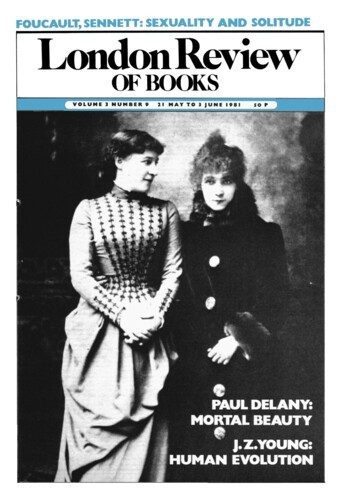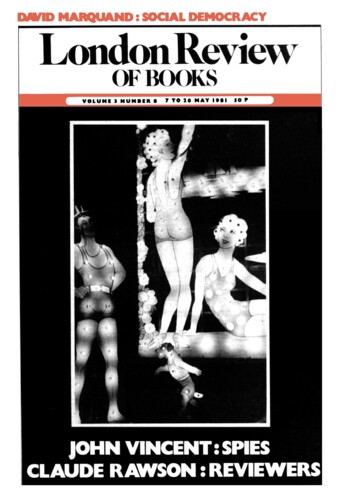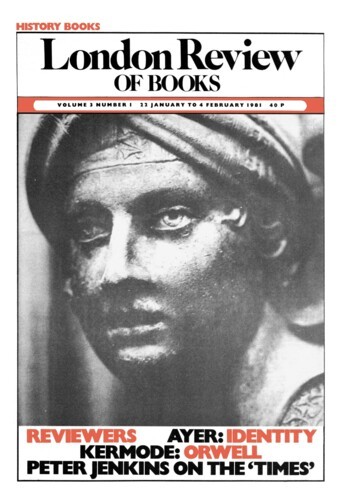Fatalism
Graham Hough, 16 July 1981
The four novels before us are all highly original, but they tend to confirm an old popular belief – that there are two sexes and that there are some differences between them. All end sadly, in moods of more or less fatalist acceptance: but the spheres of their sorrow are divided on strictly traditional lines by the gender of their authors – the cannon and the firing-squad against the drawing-room and the kitchen stove. At the end of David Pownall’s book the protagonist and his confidant are shot. At the end of John Hearne’s the leading characters have been respectively drowned, decapitated and disembowelled, and the hero is about to be hanged. Ann Schlee’s story ends with her heroine renouncing a fantasy and going to live in a cottage by herself, having made a small but definite act of defiance against a spiritually tyrannical brother. Anita Brookner’s heroine ends as she began, writing a chapter on Eugénie Grandet in her book on Balzac, having lost a lover and acquired the duty of looking after a selfish and dependent father. The wrong choices, in the men’s novels are violent and catastrophic and punished by death. The misdirections in the women’s novels are more a matter of attrition, perhaps not quite beyond amendment: purgatorial, it may be, rather than infernal.





